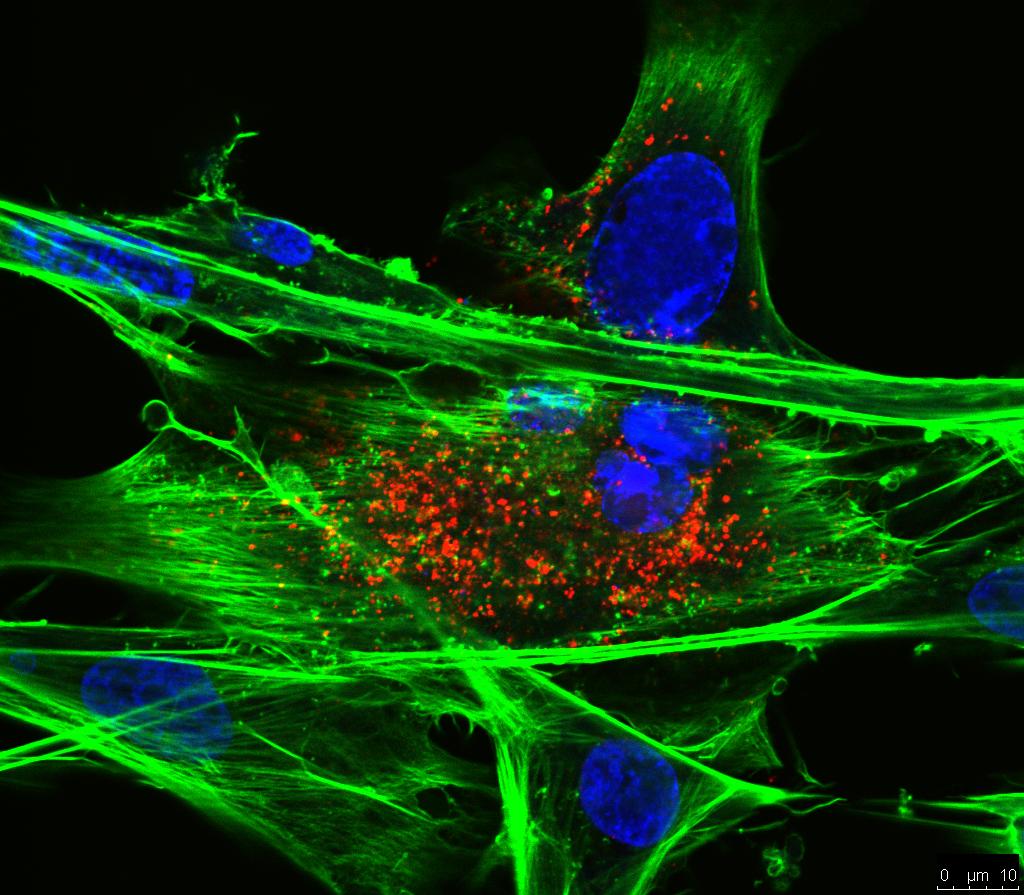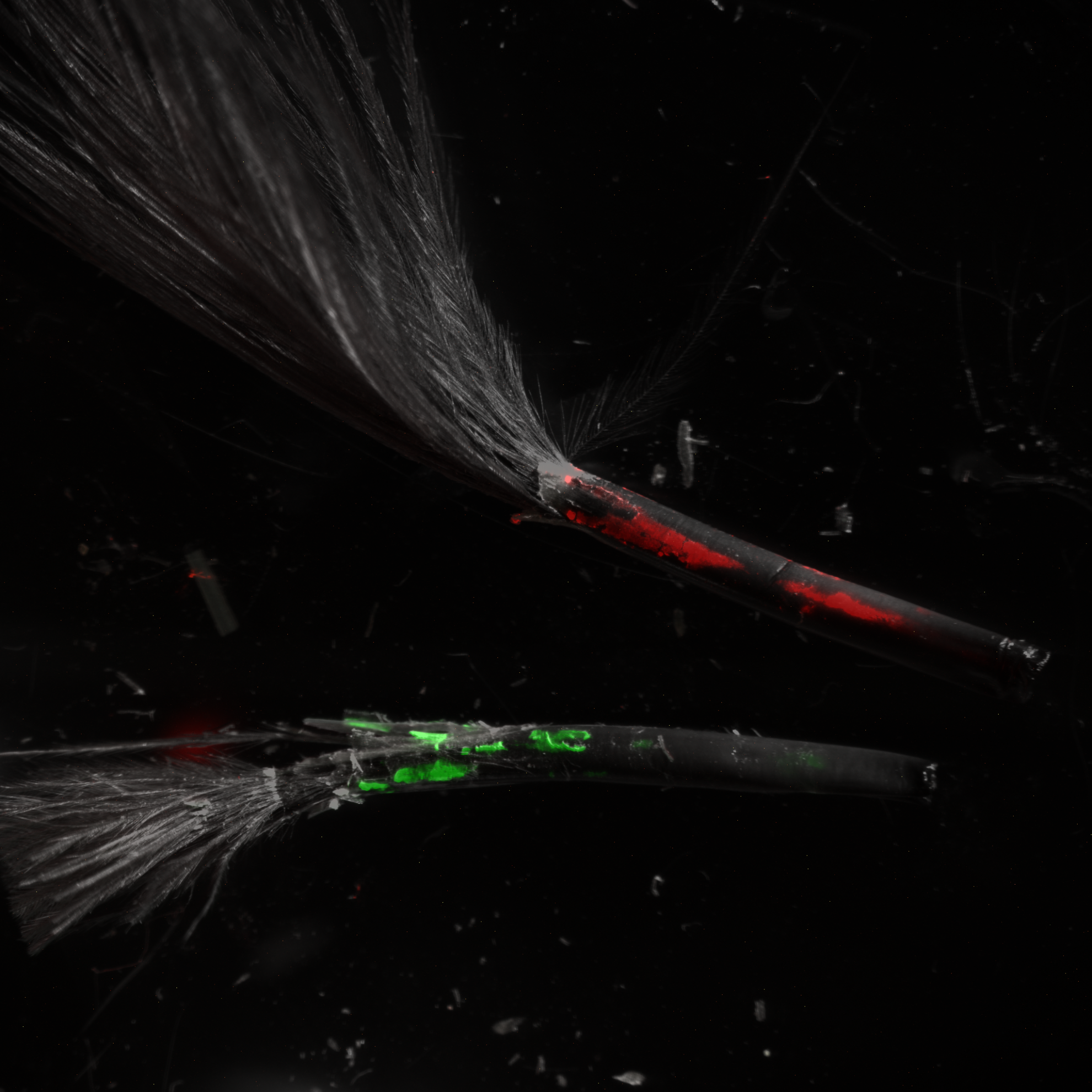Prevention of avian retrovirus infection in chickens using CRISPR-Cas9 delivered by Marek's disease virus
Reticuloendotheliosis virus (REV) is an avian retrovirus that causes an oncogenic, immunosuppressive, and runting-stunting syndrome in avian hosts. The co-infection of REV and Marek's disease virus (MDV), an oncogenic herpesvirus in chickens, further increases disease severity and reduces MDV vaccine efficacy. The clustered regularly interspaced short palindromic repeats (CRISPR)-Cas9 system has successfully been used against pathogens in mammalian cells. However, the large size of the CRISPR-Cas9 coding sequences makes its in vivo delivery challenging. Here, following the design of a panel of single-guided RNAs targeting REV, we demonstrate that CRISPR/Cas9 can efficiently mediate the editing of the long terminal repeats of REV, resulting in the inhibition of viral protein expression. The CRISPR-Cas9 system disrupts the integrated proviral genome and provides defense against new viral infection and replication in chicken cells. Moreover, by constructing recombinant MDV carrying CRISPR-Cas9 components using an attenuated MDV vaccine strain as the vector, we efficiently delivered the CRISPR-Cas9 system into chickens, and the MDV-delivered CRISPR-Cas9 drastically reduced REV viral load and significantly diminished REV-associated symptoms. To our knowledge, this is the first study establishing avian retrovirus resistance in chickens utilizing herpesvirus-delivered CRISPR-Cas9, which provides a novel and effective strategy against viral infections.

